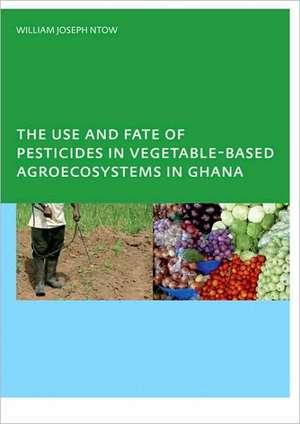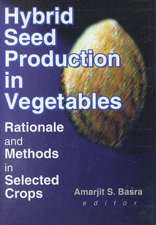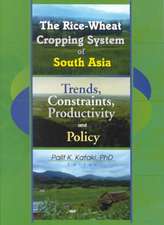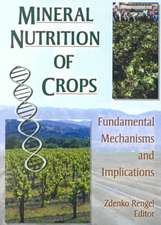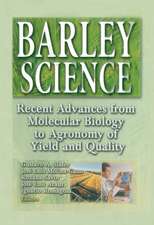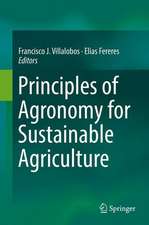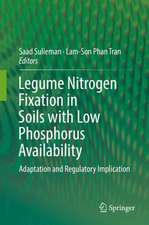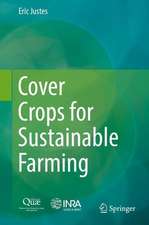The Use and Fate of Pesticides in Vegetable-Based Agro-Ecosystems in Ghana
Autor William Joseph Ntowen Limba Engleză Paperback – noi 2008
Students and scientists in the fields of environmental chemistry and/or science, farmers, agricultural extension officers and environmental and health regulatory agencies will find this book very useful.
Preț: 383.32 lei
Preț vechi: 497.43 lei
-23% Nou
Puncte Express: 575
Preț estimativ în valută:
73.36€ • 75.94$ • 62.00£
73.36€ • 75.94$ • 62.00£
Carte tipărită la comandă
Livrare economică 05-19 martie
Preluare comenzi: 021 569.72.76
Specificații
ISBN-13: 9780415462747
ISBN-10: 0415462746
Pagini: 120
Ilustrații: 20 b/w images, 2 color images and 25 tables
Dimensiuni: 178 x 254 mm
Greutate: 0.23 kg
Ediția:1
Editura: CRC Press
Colecția CRC Press
ISBN-10: 0415462746
Pagini: 120
Ilustrații: 20 b/w images, 2 color images and 25 tables
Dimensiuni: 178 x 254 mm
Greutate: 0.23 kg
Ediția:1
Editura: CRC Press
Colecția CRC Press
Cuprins
1. Farmer perceptions and pesticide use practices in vegetable production in Ghana; 2. Dissipation of endosulfan in field-grown tomato (Lycopersicon esculentum) and cropped soil at Akumadan; 3. The impact of agricultural runoff on the quality of two streams at Akumadan and Tono; 4. Occupational exposure to pesticides: blood cholinesterase activity in farmers at Akumadan; 5. Accumulation of persistent organochlorine contaminants in milk and blood serum of vegetable farmers; 6. Dietary exposure to pesticides from vegetables among adult farmers at Akumadan
Notă biografică
William Joseph Ntow (1960) received his degree in Chemistry atthe University of Cape Coast, Ghana. He taught secondary school chemistry for four years and proceeded to The University of Science and Technology (Kwame Nkrumah University), Kumasi, Ghana in 1990 to pursue a two-year Master's programme in Environmental Chemistry. He worked at the Institue of Acquatic Biology (now Water Research Institue, WRI) of the Council for Scientific and Industrial Research (CSIR) and carried out research into various aspects of resources of inland, estuarine, lagoonal and the immediate coastal inshore water systems of Ghana covering water quality and pollution. He obtained a MSc at UNESCO-IHE in 1998 specialising in Water Quality Managament.
Descriere
Based on a study and surveys conducted in Ghana, this volume covers the various impacts of pesticide use in vegetable-based agro-ecosystems. The study carried out between 2003 and 2007 provides a better understanding of the potential impact of pesticide usage on the ecosystem and agrosystem, which will contribute to better pesticide management. The results of the study establish essential information on the levels and fate of pesticide residues in the environment of Ghana as well as public health implications.
